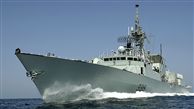By Betty Plewes, The Mark, April 15, 2011
It’s time to start discussing Canada’s role in Afghanistan and Libya, and Canada’s declining global reputation.
Co-authored by Hunter McGill and Ian Smillie.
Under the Harper government, Canada has lost its way internationally, unable to think beyond Afghanistan and now Libya. We have become an international laughingstock where climate change is concerned. At a critical moment in the Middle East, our reputation is in tatters, exemplified by our ignominious, $90-million eviction from a key air base in Dubai.
For the first time in history, we have been rejected by member states in our bid for a United Nations Security Council seat. In the Arctic, we promote a dangerous Cold War approach, and at a time when budgets everywhere are being slashed, we have committed $16 billion (or is it $29 billion?) to the untendered purchase of new F-35 fighter jets. Our aid program is in tatters, the minister responsible for the Canadian International Development Agency is in disgrace, we rank 14th on a per-capita basis in terms of our generosity, and a 2010 World Bank study ranked us 29th in relation to aid quality.
Our contribution to UN peacekeeping, once a Canadian hallmark, barely exists: In January there were precisely 224 Canadian troops assigned to UN peacekeeping missions.
We can do better than this.
Foreign policy matters to Canada. As one of the most trade-dependent members of the G8, foreign affairs and international issues affect us deeply, and cannot be approached on an episodic, piecemeal, and partisan basis. It is in Canada’s national interest to work to support global stability, prosperity, and security. This represents Canadian values and it reflects the reality of Canada’s situation as a relatively small economy in a world increasingly dominated by emerging nations such as China, Brazil, and India.
Poverty, climate change, and fragile states present challenges that Canada cannot ignore. Canada can no longer ride in the slipstream of American and European foreign policies. “Business as usual” is not an option.
Canada should be engaged in the world as an important, consistent, and co-operative player with a foreign policy based on an understanding that security and prosperity are fundamentally intertwined. Our foreign policy should put people first, and strengthen rights, human development, and stability. Canada should stand for inclusiveness and focus on the most disadvantaged people and the most fragile states.
We propose five key directions for realigning Canadian foreign policy:
- Since Canada’s future prosperity and security depend on the prosperity and security of all nations, ending poverty and strengthening people’s rights is not an optional sidebar; it must be a central plank in Canadian foreign policy. Canada’s aid program should be overhauled, upgraded, expanded, and based on locally identified long-term sustainable development rather than short-term Canadian advantage. Development should be a central element of our foreign policy instruments.
- Canada should recommit to a rules-based international order grounded in respect for international law and effective multilateral institutions. We should rebuild our role at the United Nations and strive to once again become a player in its key agencies and a meaningful contributor to UN peacekeeping efforts.
- Canada should seek to become a leader at home and abroad in dealing with the enormous challenges posed by climate change. Our Arctic policy should focus on people and potential in a time of dramatic climate change and increasing disparity, and we should work closely with our northern residents and with other circumpolar nations to resolve these issues.
- Canada needs to rebalance its approach in the Middle East, seeking to become an honest broker and a supporter of all aspirations for democracy in the region.
- Canada does not have to be a leader everywhere; we should lead where we can – and where we cannot, we should work to promote international consensus based on principles of peace and human security.


